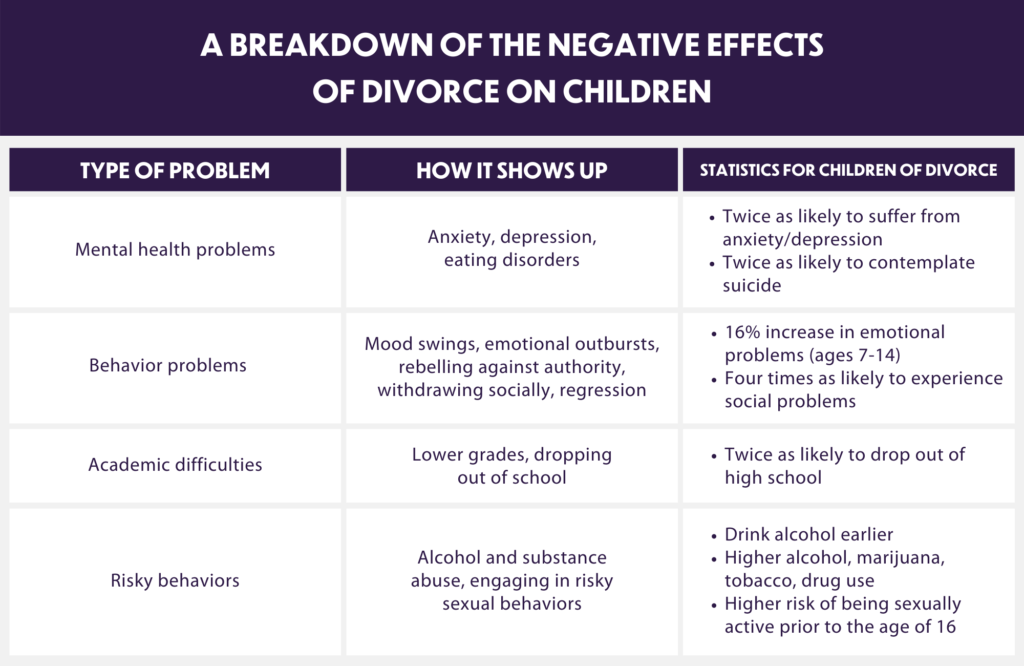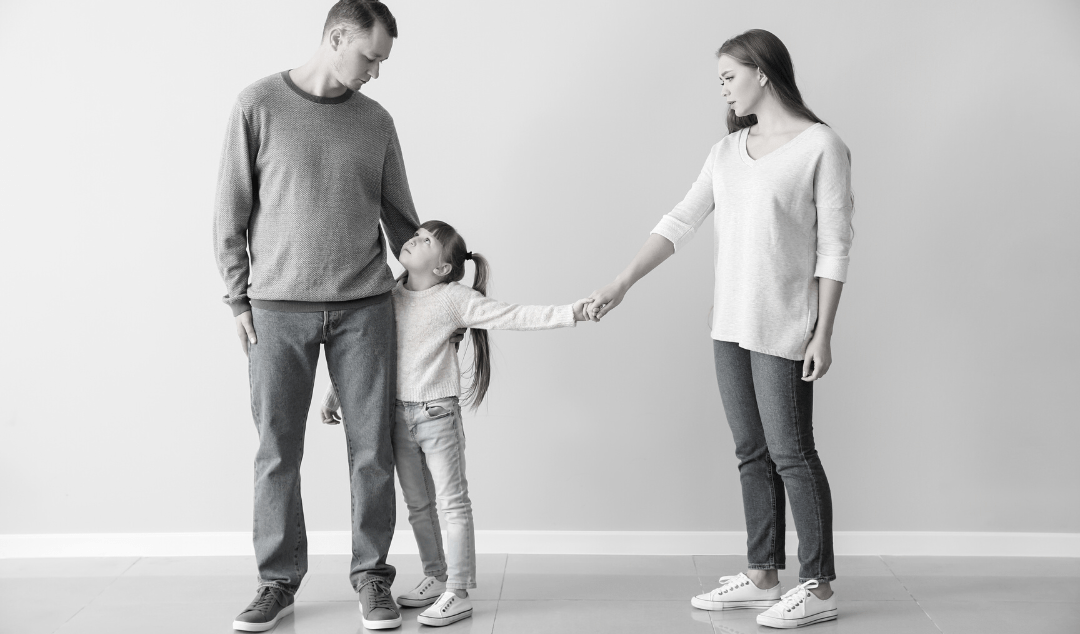It’s no secret that the relationships we witness as children impact our relationships as adults, so it’s common for divorced parents to worry about how their split will impact their children. What many divorced parents may not realize is that it’s not the breakup itself that creates negative effects on children, but co-parenting conflicts that arise after the divorce. Let us help you to minimize the negative effects of divorce on your children.
Common Negative Effects of Divorce on Children:
- Mental health problems
- Behavior problems
- Academic difficulties
- Risky behaviors

When You Divorce with Kids, Keep an Eye on Their Mental Health
Children of divorce may experience anxiety if they are constantly exposed to conflict between their parents. They may also struggle with depression if they blame themselves for why their parents divorced in the first place. Children of divorce may also battle eating disorders and other mental health problems.
If you divorce with kids, it’s important that you pay attention to their mental health, just as much as you do their physical health. Children of divorce are twice as likely to suffer from anxiety and depression and are also twice as likely to contemplate suicide. Reduce conflict as much as possible with your co-parent, reassure your child that they are not responsible for the demise of the relationship, and offer support to them in any way possible, including having them talk to a therapist.
Address Behavior Problems Right Away
If you notice that your child is experiencing frequent mood swings and emotional outbursts, or if they start rebelling against authority, withdrawing socially, or showing signs of regression, address it immediately. The wait-and-see approach can be detrimental in this instance because the problems often just compound in children of divorce.
Parents who divorce with kids between the ages of 7 and 14 are 16% more likely to run into these types of behavior problems. In addition to struggling with authority, they may also struggle with their peers. Children of divorce are four times as likely to experience social problems than those whose parents are still together. To avoid these negative effects on children, stay in contact with your child’s primary care doctor and other health care providers. You should also stay in touch with your child’s school, including their teachers, guidance counselor, and coaches, and let them know that they should notify you immediately if they notice any behavior problems occurring with your child.
Avoid Educational Effects on Children
Children from divorced families are more likely to experience poor academic performance than their peers. Not only do they tend to have lower grades and miss more school than children whose parents are still together, they are also twice as likely to drop out of high school.
There are several reasons this may occur. Children experiencing some of the behavior problems we mentioned above may also experience poor academic performance as a result of those behaviors. Other children may miss school due to court dates associated with the divorce, or they may have to change schools due to the divorce. There’s also a small percentage of children who will quit school to go to work so that they can help support their family.
As a parent going through a divorce with kids, the most important thing you can do for them academically is to stay involved. Make a plan with your child’s teacher and counselors to ensure that they will still succeed academically despite the divorce.
This may include:
- Adjusting their classes
- Getting them a tutor
- Signing them up for study groups
- Helping with their homework and other assignments
Help Your Child Stay Away from Risky Behaviors
Unfortunately, negative effects that are not addressed promptly after a divorce can lead to risky behaviors later on, including alcohol and substance abuse and risky sexual behaviors. Children of divorce are more likely to drink alcohol earlier than their peers and experience a higher rate of alcohol, marijuana, tobacco, and drug use. They are also at higher risk of being sexually active before the age of 16.
A big factor that contributes to these risky behaviors is the lack of one parent’s involvement in the child’s life after the divorce- in particular, the father. Whenever possible, maintaining a strong bond with both parents is important for a child of divorce. There will, of course, be instances where this isn’t possible, especially if there is some sort of abuse going on. It’s even more important for children in these cases to receive mental health support. Showing your children the importance of taking care of their mental health at a young age is one of the biggest gifts you can ever give to them.
While there are bound to be challenges that children face after a divorce, it can also be used as a teaching moment. This is an opportunity to show your children how to handle conflict with grace, and how to turn bad things that happen in life into something positive. When you combat the negative effects of divorce together, you become a stronger family unit, and that type of strength can be passed down for generations.
